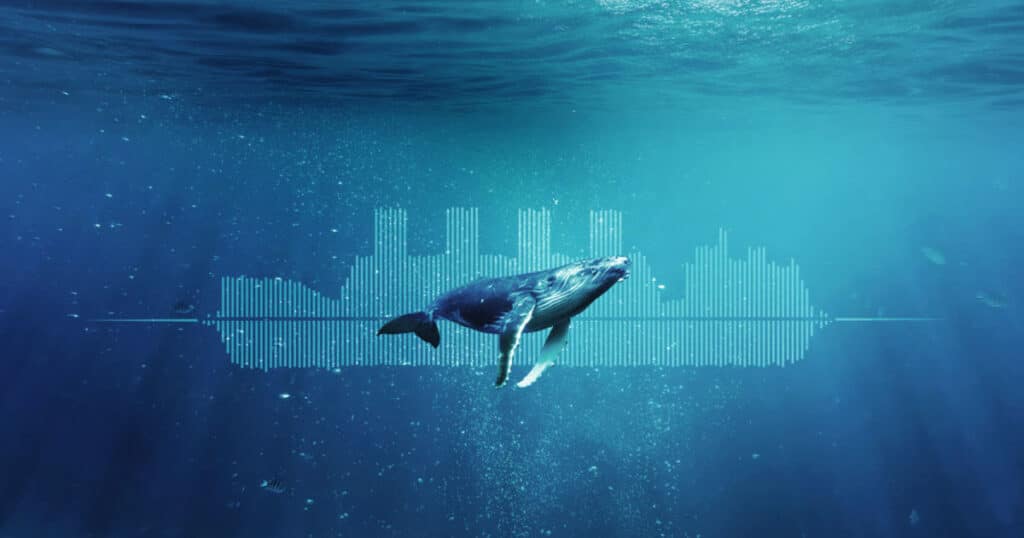
1. EU Takes Historic Step to Protect Marine Life: Mandatory Limits on Underwater Noise Pollution Communicated to Member States
BRUSSELS — The European Commission is now setting limits for underwater noise pollution. In light of the International Fund for Animal Welfare (IFAW) advocating the need to reduce this pollution, measures have now been developed in the context of the EU Marine Strategy Framework Directive (MSDF). Half of underwater noise pollution is produced by the commercial shipping industry. IFAW’s Blue Speeds campaign calls for the EU to set a speed at 75% of the maximum speed of commercial vessels in EU waters.
“Underwater noise pollution is a little-known but growing threat to the health and lives of whales, dolphins, and many other marine species. IFAW is calling for immediate action to turn down the noise and the implementation of Blue Speeds for commercial ships in European waters offers an immediate and straightforward solution,” said Ilaria Di Silvestre, Head of EU Policy & Campaigns at IFAW.
Thank you for your generous gift that will help us continue the production of this weekly, free publication
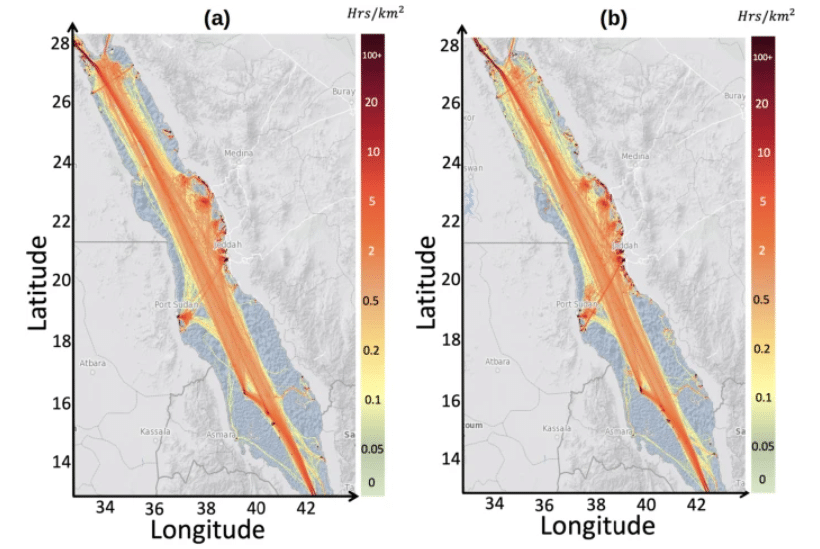
2. Numerical Investigation of Shipping Noise in the Red Sea
The Red Sea – Underwater noise pollution is a significant environmental issue that can have detrimental effects on marine ecosystems. One of the main sources of underwater noise pollution is ship traffic, which has been shown to negatively impact marine animals by masking communication signals and altering their behaviors. This study represents the first comprehensive analysis of underwater ship noise in the Red Sea, wherein noise maps of ships sailing through the main shipping lane in the Red Sea were simulated by integrating both anthropogenic and environmental variables.
These maps offer valuable insights for policymakers, enabling them to make informed decisions and implement targeted mitigation efforts. Click the link to dive into deeper detail about the methods used and the discussion around this fascinating and increasingly more relevant topic.
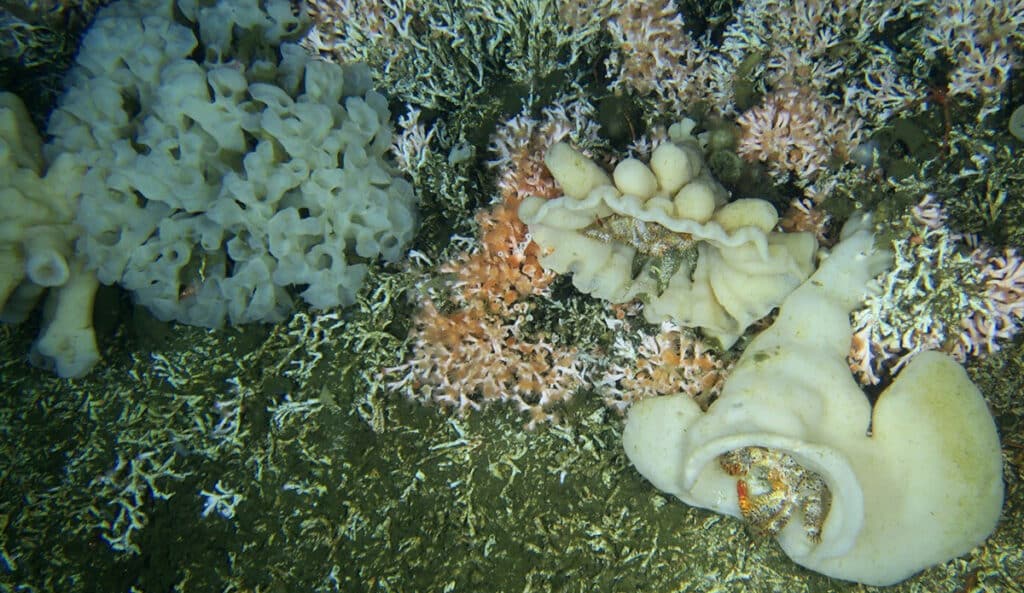
3. Canada Bans Bottom-Contact Fishing Near Its Only Coral Reef
BRITISH COLUMBIA, Canada – Canadian federal authorities have closed Canada’s only known live coral reef to commercial and recreational bottom-contact fishing. With this action, the Canadian government hopes to protect a unique site with both environmental and cultural significance for the region. The indefinite ban on all commercial and recreational bottom-contact fishing in the area came into effect on February 14, 2024, as the CBC reports.
The site of the ban is a Lophelia Reef located in the Finlayson Channel of British Columbia’s Central Coast, about 310 miles northwest of Vancouver. The reef was first discovered in 2021 and mapped in 2022. It is both the only-known live coral reef in Canada’s Pacific, as well as the northernmost coral reef in the entire Pacific Ocean. The coral reef is currently being assessed for a Parks Canada national marine conservation area reserve.
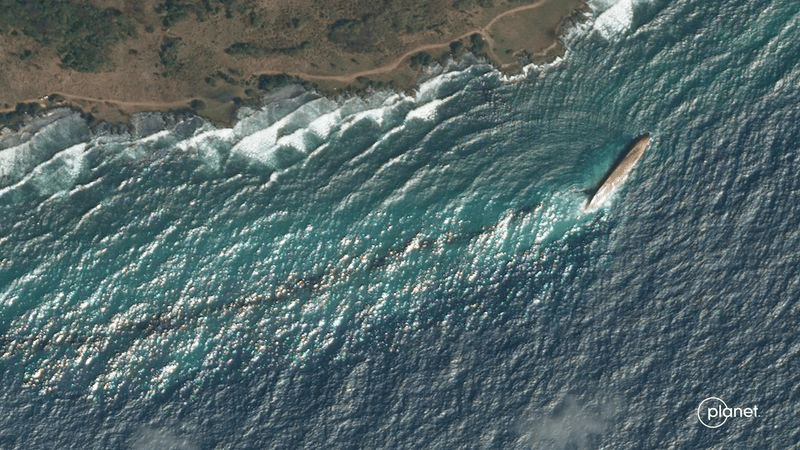
4. Oil Leak From Capsized Barge off Tobago Stopped After a Month
HOUSTON — An oil leak from a barge carrying up to 35,000 barrels of fuel oil that capsized in early February off the Caribbean island of Tobago has stopped, said the twin islands’ government on Thursday. The spill, which was first spotted off the coast of Tobago’s Atlantic coast on Feb. 7, damaged some of the island’s mangroves and threatened its tourism and fishing sector. The spill also entered the Caribbean Sea, threatening nearby Venezuela and Caribbean islands, including Bonaire.
The compartments of the vessel from which the oil was leaking are now filled with sea water above the leak point effectively blocking further flow of the fuel oil. The government has hired remediation and salvage firms to help clean up the spill and salvage the leaking barge. The volume of the spill, its origin, intended destination, and ownership of the barge remain unknown.
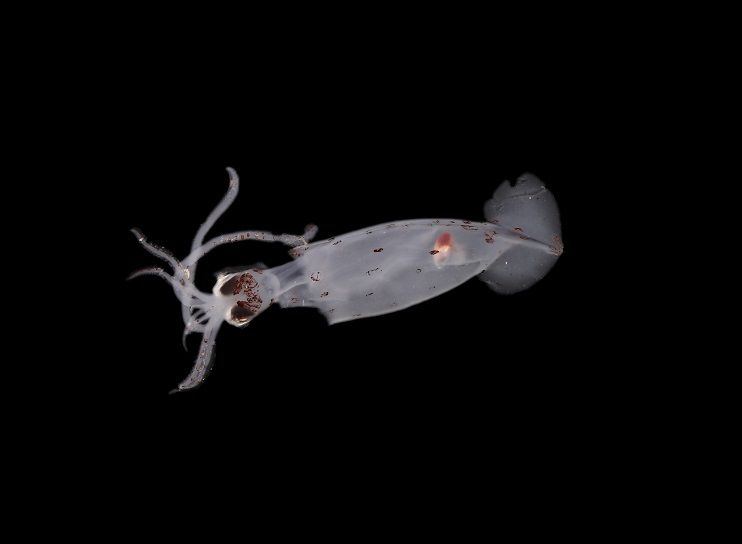
5. New Species Alert! 100+ Squid Species Discovered in New Zealand
BOUNTY TROUGH, New Zealand — In February, a team of researchers exploring the area discovered roughly 100 new and potentially new marine species. The Bounty Trough is a roughly 500-mile long basin east of the South Island of New Zealand and the Pacific is the deepest and largest ocean basin on the planet, so it is remote and difficult to explore. Close to 1,800 samples were collected during the three-week-long expedition, and some of the specimens were found more than 15,000 feet deep.
Besides discovering 3 new species of fish, the team also found dozens of new mollusks, a shrimp, and a cephalopod which is a type of predatory mollusk. According to the Ocean Census, we currently know of 240,000 marine species, and an average of 2,200 species are discovered annually. Expeditions to ocean regions like the Bounty Trough are critical to discovering new species
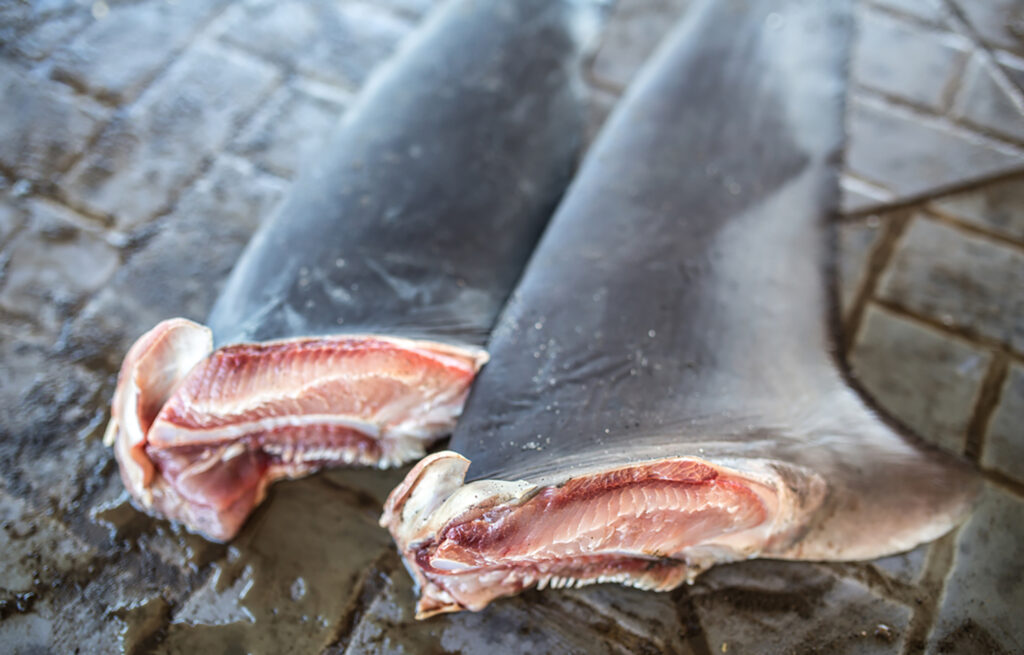
6. EJF Report Alleges Labor Abuse, Illegal Fishing Aboard Zhejiang Ocean Family Vessel
ZHEJIANG, China — Some of the world’s largest retailers have been confirmed to be vendors of seafood sourced from Chinese tuna company Zhejiang Ocean Family (ZOF), which has recently become the focus of an Environmental Justice Foundation report on human rights abuses. Labor abuses and illegal fishing such as shark finning were among the various unethical actions taking place aboard ZOF-owned or -associated ships, often on the high seas, where they receive little oversight.
ZOF declined SeafoodSource’s request for comment on the allegations. The Environmental Justice Foundation developed a list of seafood firms that purchased from these vessels by using data published by the Chinese company in a canceled 2023 initial public offering. It was found that these firms supplied major retailers in Japan, including Rakuten and Amazon, as well as other global retailers like Carrefour, Iceland, Lidl, Marks & Spencer, and El Corte Inglés.
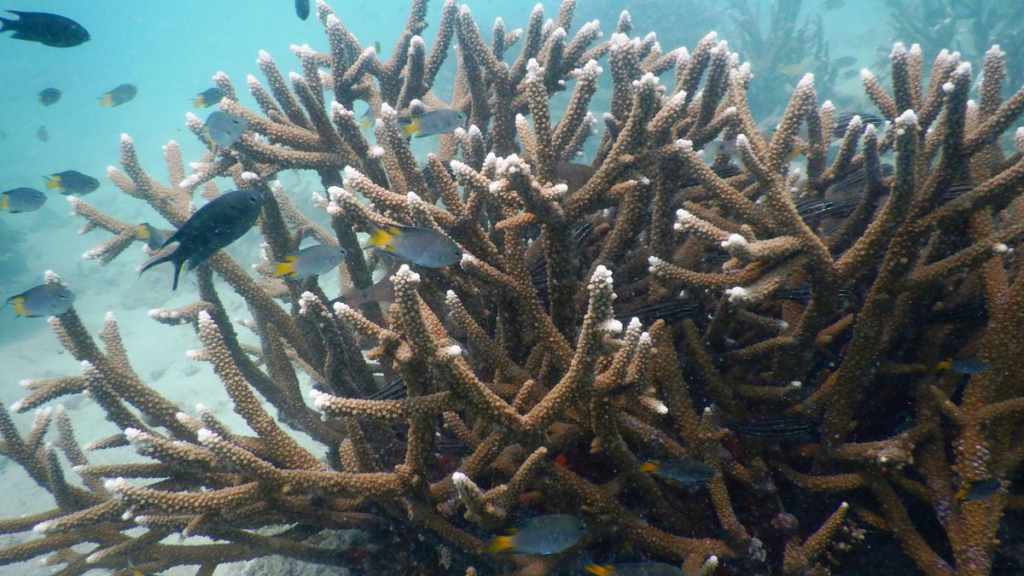
7. Stepping up Efforts to Conserve India’s Coral Reefs
TAMIL NADU, India — The Tamil Nadu government will continue its conservation efforts by formulating a comprehensive conservation and management policy to protect the coral reefs and associated biodiversity while ensuring sustainable livelihood for thousands of fisherfolk. These coral reefs have suffered a decline in health and coverage owing to a combination of climatic and anthropogenic factors, for example, coral mining, overfishing, pollution, coral bleaching, disease outbreaks, and bio-invasions.
The protection and conservation of the coral reefs in the Gulf of Mannar is made an even more complex and challenging task due to the fact that reef areas are close to the highly populated coast. But so far, government-led enforcement and patrolling, coupled with awareness campaigns, provision of alternative livelihood, and community development initiatives, have been pivotal in conservation.
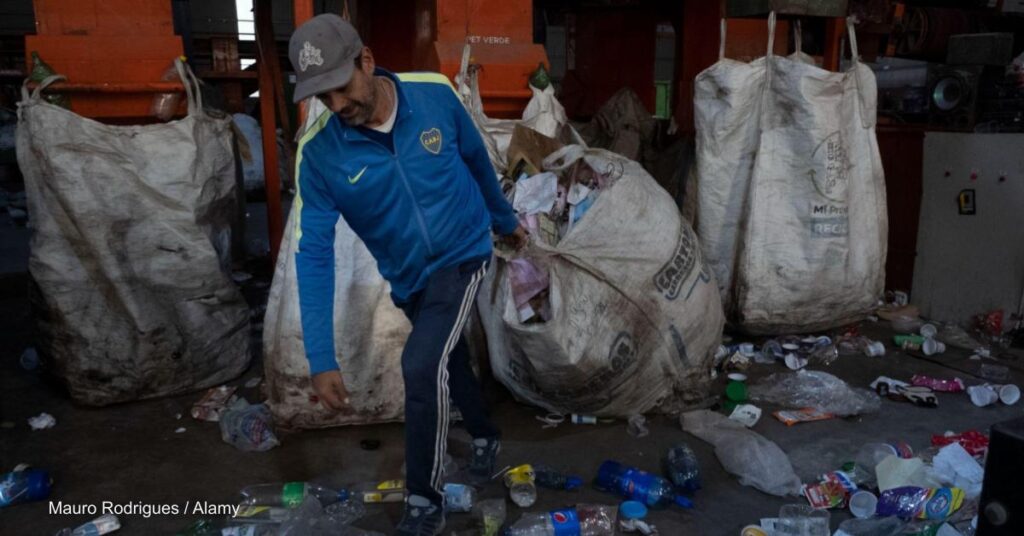
8. The Campaign to Beat Plastic Pollution: UN Commit to Develop a Legally Binding Agreement
The UN Environment Assembly shows multilateral cooperation at its best. On 2nd March 2022 in Nairobi Heads of State, Ministers of Environment and other representatives from UN Member States endorsed a historic resolution at the UN Environment Assembly (UNEA-5) to End Plastic Pollution and forge an international legally binding agreement by 2024. The resolution addresses the full lifecycle of plastic, including its production, design, and disposal.
Plastic production soared from 2 million tonnes in 1950 to 348 million tonnes in 2017, becoming a global industry valued at 522.6 billion USD, and it is expected to double in capacity by 2040. More than 800 marine and coastal species are affected by this pollution through ingestion, entanglement, and other dangers. “The resolution will take us towards a future with no plastic pollution, including in the marine environment,” said Tsuyoshi Yamaguchi, Japan’s Environment Minister.
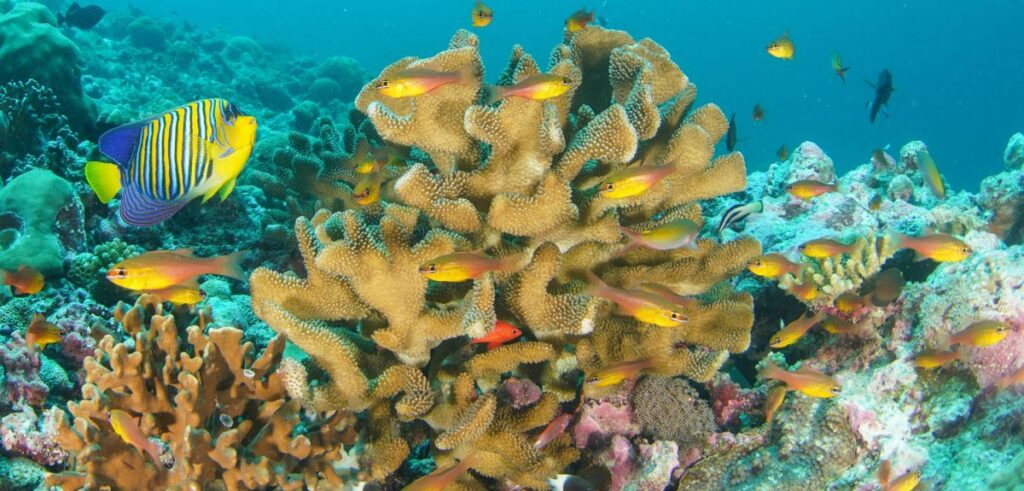
9. Found! A Coral Superhighway in the Indian Ocean!
New research has revealed that, despite being scattered across more than a million square kilometers, remote coral reefs across the Seychelles are closely related. Using genetic analyses and oceanographic modeling, researchers at Oxford University have demonstrated for the first time that a network of ocean currents scatter significant numbers of larvae between these distant islands, acting as a “coral superhighway.”
Dr. April Burt (Department of Biology, University of Oxford, and Seychelles Islands Foundation), lead author of the study, said, “This discovery is very important because a key factor in coral reef recovery is larval supply. Although corals have declined alarmingly across the world due to climate change and many other factors, actions can be taken at local and national scale to improve reef health and resilience.
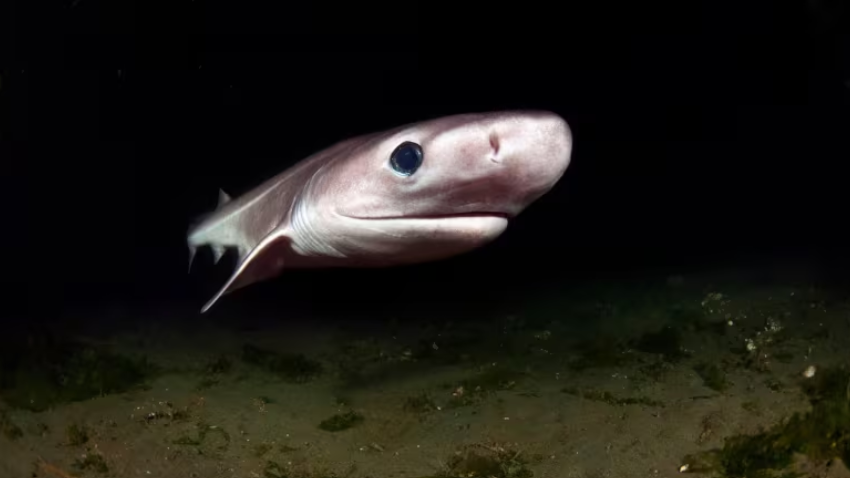
10. Deepwater Shark, Ray Populations Decline Due to Oil, Meat Fishing
The international liver oil and meat trade seems to be depleting the population of deepwater sharks and rays. This is potentially irreversible due to these animals’ extremely slow life histories. The deep ocean – the largest and one of the most complex ecosystems on Earth – is considered the last natural biodiversity refuge from the reach of human activities. Many of the shark and ray species are not protected by current management strategies and given the species’ characteristic slow life histories, long life spans, and meager reproductive output, cannot be easily reversed.
One-third of threatened deepwater sharks are targeted for fishing and half of the species targeted for the international liver-oil trade are threatened with extinction. A depth limit to fishing activity and expansion of no-fishing areas could enhance protection for many of these species if implemented with international fishing and trade regulations.
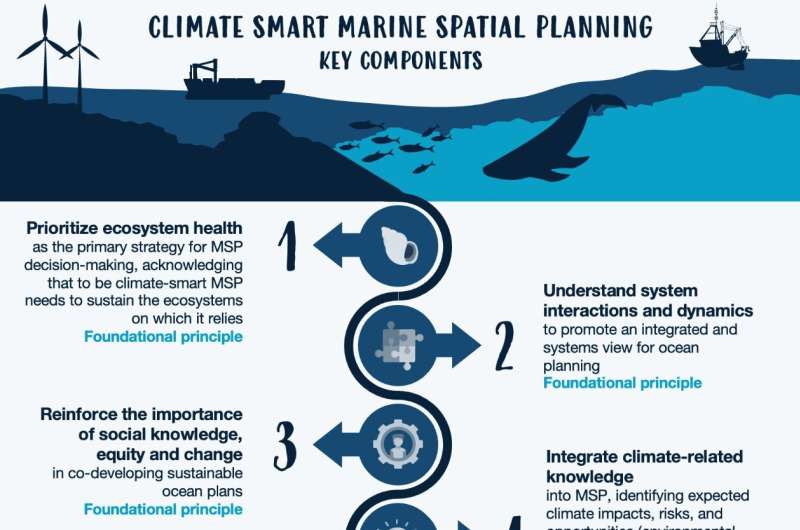
11. Key Components of Sustainable Climate-Smart Ocean Planning
To succeed in a changing ocean, marine spatial planning (MSP) must be ‘climate-smart’— integrating climate-related knowledge, being flexible to changing conditions, and supporting climate actions. Planning of marine areas has spread widely over the past two decades to support sustainable ocean management and governance. While the need has been globally recognized, at a practical level, marine managers and planners require further guidance on how to put it into action. MSP is an ecosystem-based process for balancing multiple human demands with the ecological requirements for a healthy ocean that delivers multiple ecosystem services.
To be climate-smart, MSP must first be ‘conservation ready’ or ‘ecosystem-based’. This means recognizing conservation as enabling ocean use and enhancing benefits to society in the long term. Ten key components will be introduced that, if well-integrated, would promote the development and implementation of sustainable, equitable, climate-smart MSP initiatives around the globe.
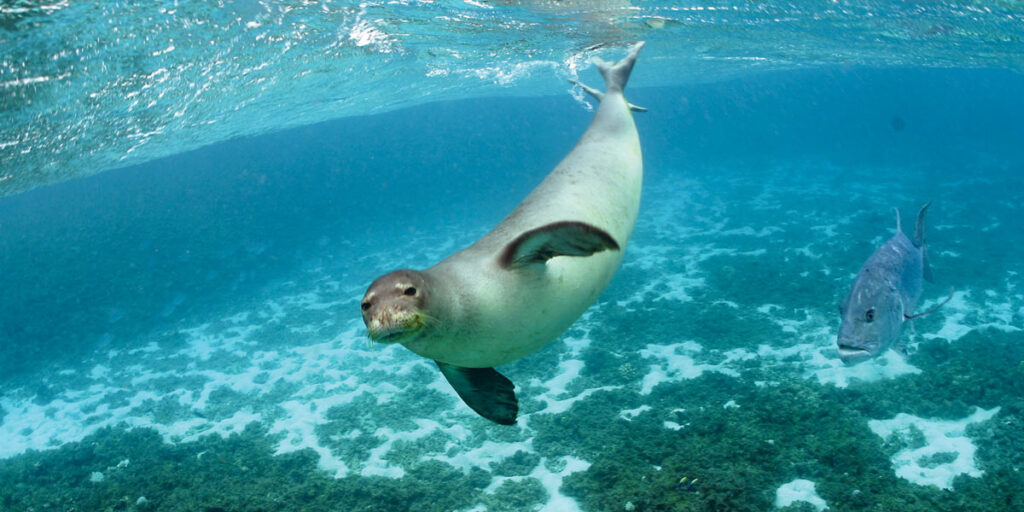
12. NOAA Talks New Proposal for Papahanaumokuakea
HONOLULU — The National Oceanic and Atmospheric Administration is proposing a national marine sanctuary in the marine portions of the existing Papahanaumokuakea Marine National Monument, which is a protected area to the northwest of the main Hawaiian Islands. This is the largest contiguous fully protected conservation area under the U.S. flag and one of the largest marine conservation areas in the world. It encompasses 582,578 square miles of the Pacific Ocean (1,508,870 square kilometers) – an area larger than all the country’s national parks combined.
Designation as a national marine sanctuary would strengthen existing protections for the monument through the addition of sanctuary regulations. It would supplement and complement the efforts of the State of Hawaiʻi and other federal agencies to conserve the nationally significant ecosystems and cultural resources of this area.
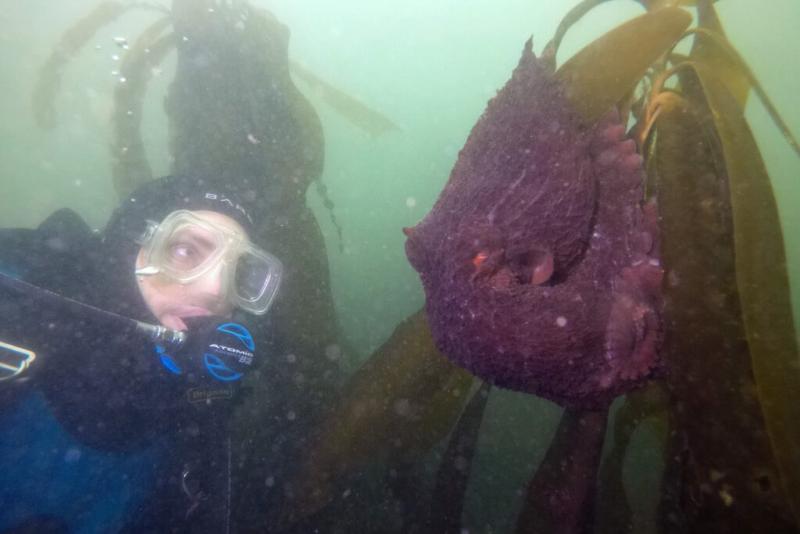
13. California’s Currents Shows Resilience to Strong El Niño
The California Current ecosystem is a vital ocean system stretching from Washington to Baja California. It is facing a strong 2024 El Niño event, a cyclical warming of the Pacific Ocean. However, the latest information from NOAA’s Integrated Ecosystem Assessment program suggests the ecosystem is better positioned to weather these changing conditions than previous El Niño events. The annual California Current Ecosystem Status Reports compile results from researchers who monitor changes and trends in all facets of ecosystem health.
They represent physical, chemical, biological, and socio-economic sciences. Results from these reports are presented annually to the Pacific Fishery Management Council. Results from annual Ecosystem Status Reports highlight the importance of continued long-term monitoring, research, and management efforts to understand the changing ecosystem and how it may affect our fisheries and the coastal communities that depend on them.
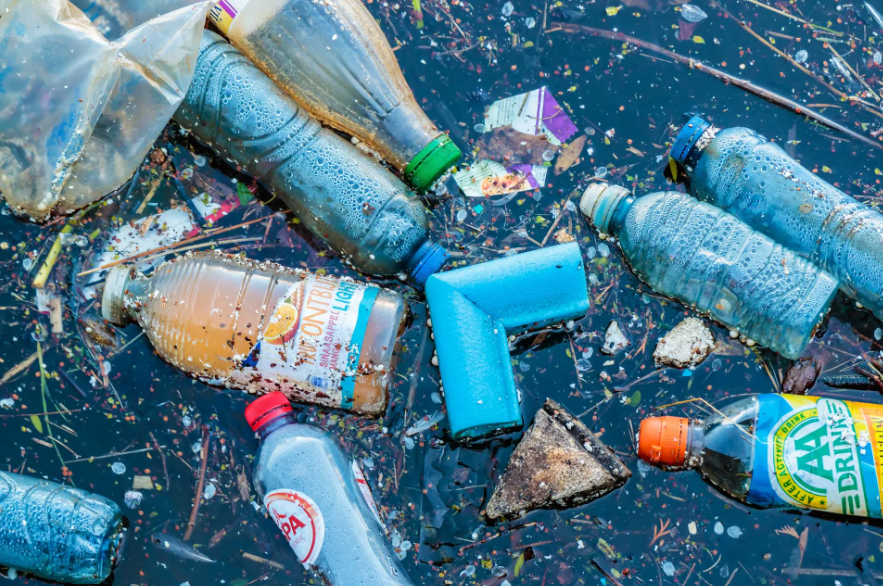
14. Unveiling the Impact of Plastic Pollution on North Atlantic Marine Life
Plastic pollution is a pervasive issue that spans the globe, affecting even the most remote corners of our oceans. From the poles to the tropics, no part of the sea is spared, with everyday items like plastic bags, bottles, and food containers contributing to the majority of this Pollution. Research conducted by Plymouth Marine Laboratory has shed light on this issue, identifying five hotspots in the North Atlantic where plastic poses the highest risk: the US Atlantic, the US Gulf of Mexico, the UK, the French Atlantic, and the Portuguese Azores.
These areas were pinpointed using a risk assessment approach that combines the tracking of buoyant plastic litter from rivers in 16 North Atlantic-bordering countries with vulnerability scores for marine megafauna and habitats. Tired of reading? There is a five (5) minute video embedded in the article for your viewing pleasure!

15. Detergent Pods Are Only the Start of Clothing’s Microplastic Pollution Problem
NEW YORK — A bill was introduced that would ban laundry detergent pods. The bill — dubbed “Pods Are Plastic” — proposed a ban on dishwashing and laundry detergent pods coated in polyvinyl alcohol, or PVA, a type of plastic that disintegrates when submerged in water. Laundry and soap companies claim the PVA coating is safe and 100 percent biodegradable, but proponents of the bill say that is not true. If the bill passes, it will only go a short way toward mitigating laundry-related microplastic pollution.
Research suggests that billions of plastic microfibers shear off of our clothing every day — when we wear them, when we wash and dry them. And even more, microplastics are released when clothes are manufactured. To solve it, environmental advocates are calling for more systemic solutions such as new laws requiring washing machine filters, better clothing design, and a shift away from fast fashion.
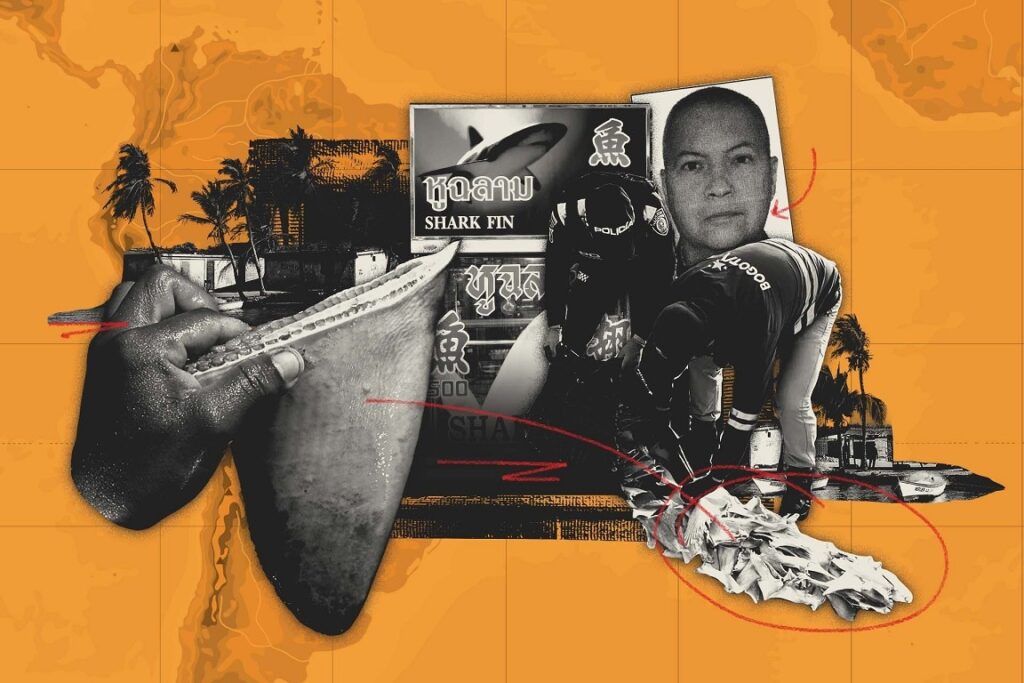
16. Son of Cali Cartel Leader Tied to Colombia-Hong Kong Shark Fin Trafficking
Although Colombia banned the fishing and trading of sharks in early 2021, fins taken from sharks in Colombia and around the world continue to be a global industry worth 500 million USD per year. This is the true-crime story of the largest seizure of its kind ever carried out in Colombian territory. A shipment of more than 3,400 shark fins destined for Hong Kong was intercepted at the airport in Bogotá in September 2021.
This investigation reveals the owner of this contraband is the son of the late Gilberto Rodríguez Orejuela, who was the leader of the Cali Cartel, once one of the largest drug trafficking organizations in the world. This investigation reconstructs the shipment’s route from the department of La Guajira, on the border with Venezuela, to Colombia’s capital, passing through the mountains in the department of Valle del Cauca.
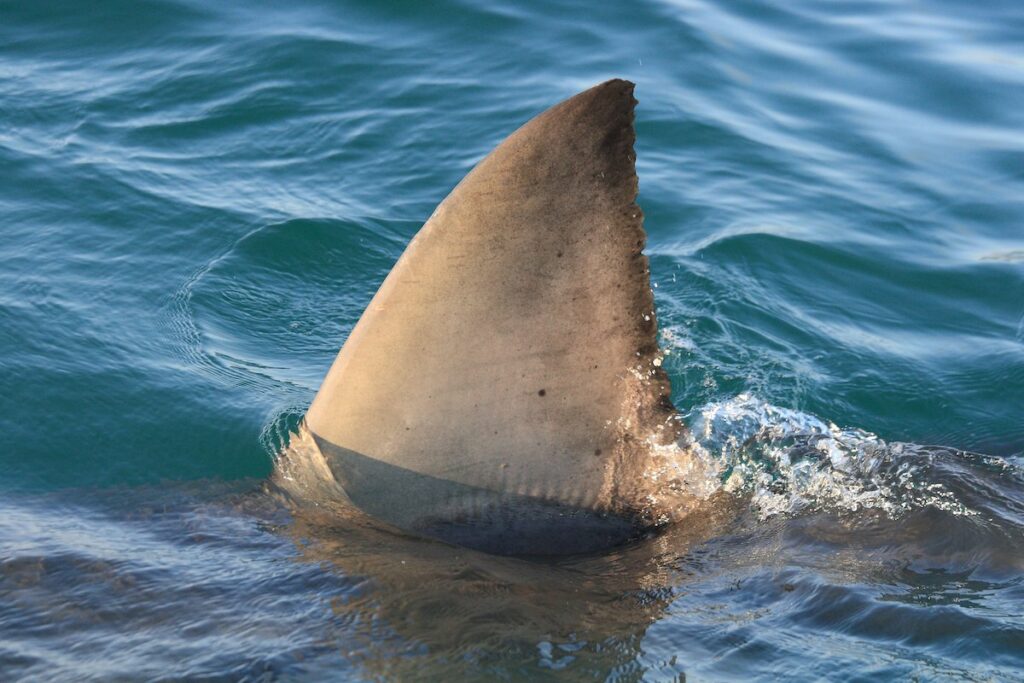
17. Connecticut Legislature Considers Banning Shark Fin Trade
The Connecticut Legislature is considering a proposed bill that would ban the possession, sale, trade, or distribution of shark fins, following a trend set by neighboring states. If adopted, the prohibition would apply to both raw, dried, and processed shark fins and tails. While shark finning is illegal in U.S. waters, advocates say Connecticut should adopt its own ban on the trade to ensure the state doesn’t become a commercial hub of shark fins.
Shark finning was made illegal in U.S. waters with the passage of the Shark Finning Act in 2000, which made it illegal to remove shark fins, and discard their bodies while at sea. Without the ban on the sale and distribution of shark fins, Connecticut’s proximity to huge population centers like New York City and Boston could make it attractive to move shark fins here.
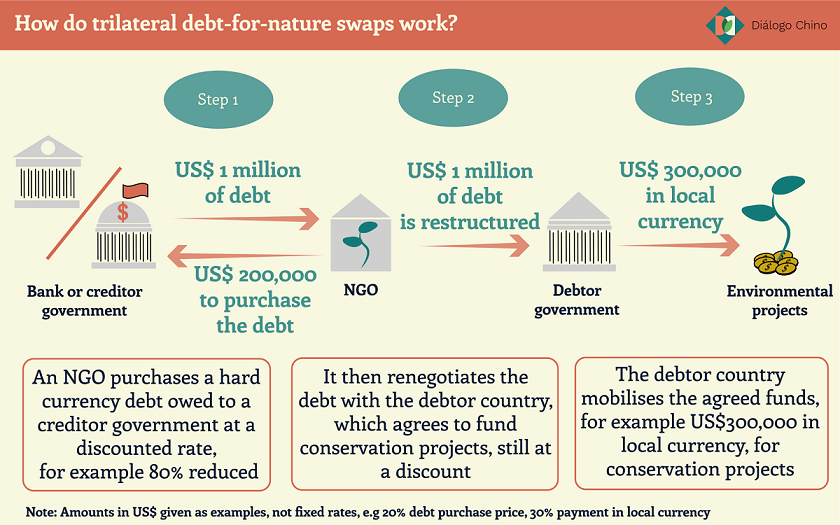
18. Debt-for-Nature Swaps Not Improving Issuers’ Credit Ratings
Debt-for-nature swaps have not made any improvement to sovereign credit ratings, according to S&P Global, although it predicted the instrument will continue to gain traction. Analysis of debt-for-nature swaps carried out so far, in countries such as Gabon, the Seychelles, or Belize, found that the issuing government’s debt burden has “generally been reduced” but not enough to “structurally change the fundamentals that constrain the sovereign’s creditworthiness.”
The long-term nature of the instrument means their effectiveness for meeting conservation targets “remains untested”. Despite this, S&P Global said debt-for-nature swaps are likely to continue gaining traction and expand into new sectors such as water management or forest conservation. This is particularly likely among lower-rated sovereigns, as higher-rated peers “maintain a wider range of options to tap markets and fund their own nature goals”, S&P Global said in its white paper.
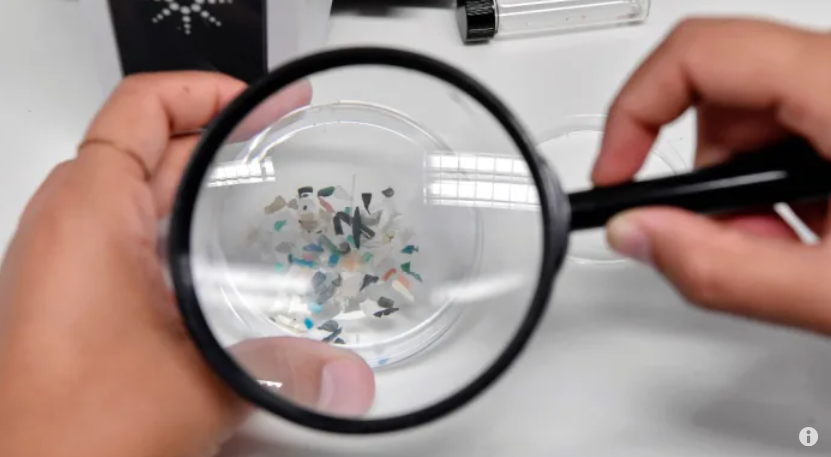
19. Microplastics Found in Over Half of Clogged Arteries in One Study
Scientists are still learning what effects microplastics have on the human body. A recent (small) study that found particles in the clogged arteries of over half of patients who underwent surgical procedures suggests that microplastics increase the risk of cardiovascular diseases such as heart attacks and stroke. The study, conducted by medical researchers at the University of Campania in Naples, followed 257 patients who had carotid endarterectomy procedures to remove fatty plaques from narrowed arteries over the course of 34 months.
Sixty percent were found to have “measurable amounts” of polyethylene plastic particles in their extracted fat deposits and 12 percent were found to have PVC plastics. The findings only link the presence of microplastics to an increased risk of heart disease. The study did not factor in additional cardiovascular disease risk factors, such as smoking, air pollution, and lack of exercise.

20. Military Bases to Stop Using Plastic Bags at Stores
U.S. military commissaries will begin the effort to phase out single-use bags by focusing on locations where state or local bans are already in force. The Defense Commissary Agency (DeCA) plans to eliminate single-use plastic bags worldwide, starting with two commissaries in Guam on March 15. This move aligns with existing local and state bans, such as those in Hawaii and California, and aims to comply with environmental laws. DeCA emphasizes a gradual transition, focusing on patron needs and logistical challenges, alongside a commitment to environmental conservation efforts.
The U.S. military’s effort to comply with and support measures to reduce single-use plastics sets an example of how institutions can lead in the global push for sustainability. Recent polls indicate broad public support for single-use plastic bans, although efforts at the local and state level are often out-gunned by well-financed opposition.

21. Zero Carbon: Kicking the Hornet’s Nest
It’s time for a serious look at shading the Earth, say the Swiss. Switzerland kicked the hornet’s nest of geoengineering with an official proposal at the UN Environment Assembly’s latest gathering in Nairobi. The Swiss wanted the UN to set up an expert group to study “the risks, benefits, and uncertainties” of blocking some of the sun’s rays using techniques of solar radiation modification (SRM).
The most common suggestion is to inject sulphur aerosols into the atmosphere and reflect some fraction of the sun’s heat before it hits the Earth. The proposal provoked fierce opposition, especially from African nations, which countered with a demand for a “non-use” agreement on SRM. After some cantankerous debate, nothing was agreed. Switzerland ultimately pulled its proposal, saying, “At least we managed to start a global conversation about this important topic.”




